TW: Self-harm
A few months ago, I came across the trailer of a film that looked, at the risk of sounding cliché, like a cross between Whiplash and Black Swan. Lauren Hadaway’s directorial debut draws inspiration from both of them, but is a semi-autobiographical film about her own experience about rowing while in college, as she herself mentioned in an interview with Variety. It follows Alex Dall as she navigates the ruthless world of college athletics, fueled by her self-destructive perfectionism. She pushes herself to inhuman limits, even resorting to self-harm to handle her obsessiveness. Isabelle Fuhrman as Alex Dall, has embodied performance anxiety down to the subtlest physical tics, and the fact that this is a performance is difficult to believe. The story’s disturbingly familiar in today’s world of cut-throat competition, and its design as a psychological thriller actually impresses on the mind of the audience, the horror of such a competitive existence. It would fit into a tragic structure as well, but fear is the main emotion that fuels the narrative here, just as the fear of failure fuels the protagonist, and that’s why this feels rather organic. And with the focus on mental health, it’s naturally fitting to portray self-destructive tendencies in a psychological thriller or horror, instead of approaching the storytelling from an impersonal direction. The lines between sympathy and pity are blurred to the extent you aren’t sure if you’re scared for her or of her, and soon enough, you’ll be feeling the extreme fear she does. And that’s how the film manages to make a scarring impact, but also makes a humanitarian case.
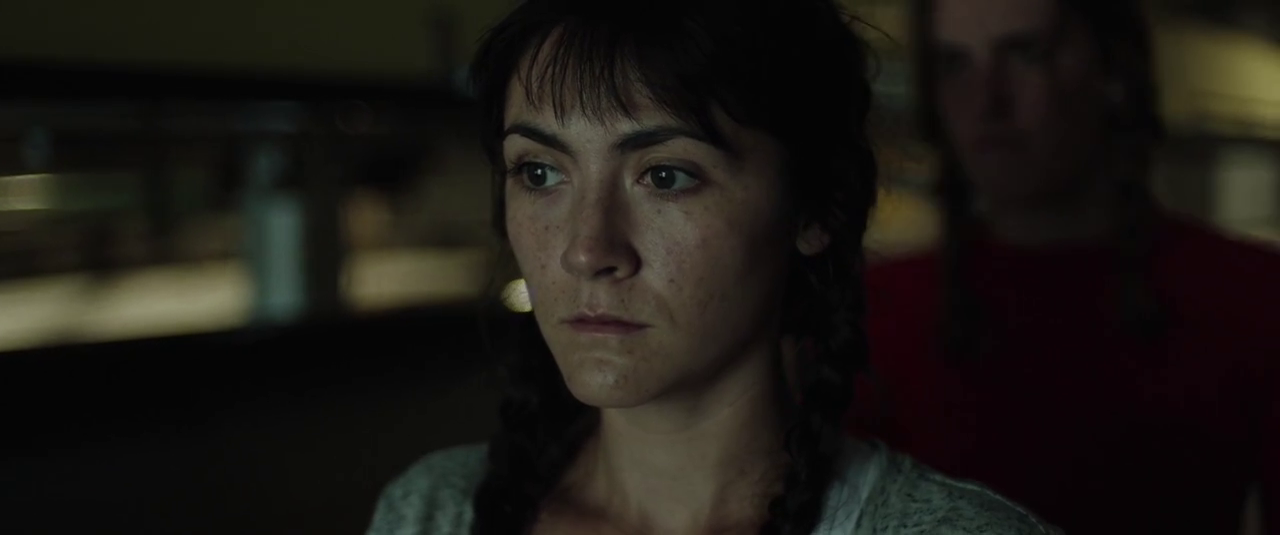
Alex gets the perfect character introduction. She’s shown taking a test, looking around while thinking about the answers. And then the T.A. announces that class is over, so everyone starts getting up. Cut to a frame of an empty hall with Alex alone at her place in the gallery. Cut again, to a shot of her leaving the classroom, and the T.A. calling after her asking why she took the test twice, after finishing first. What does this tell us about her? Firstly, she’s very conscious of her competition. Even if she’s concentrating on her work, she keeps track of her competitors’ behaviour. Secondly, she is oblivious of perception beyond performance. It doesn’t bother her that she’s the only one left in the room if that’s what’s necessary. And finally, she’s obsessive and possibly a perfectionist. She took the same test twice, most probably because she believes repeating will improve her, and we’re already introduced to her grinding attitude through this. It slowly becomes clear as the film progresses that this analysis isn’t off base, as her issue is definitely performance anxiety as opposed to social anxiety. She makes minimum effort to fit in, and is actually comfortable being a lone wolf. She mumbles something when asked why she wants to row, and while that comes across as feeling put on the spot in front of a crowd, I believe it’s a nod to the fact that her need to challenge herself is the only motivation, and she’s unsure if the lack of personal attachment will make a bad impression on the coach. She doesn’t even bother huddling and just takes notes from afar to avoid performing poorly.

It’s true that a person is layered and an affliction doesn’t define who you are, but there’s only one facet of Alex Dall that’s expressive in the scope of the experience around which the film is constructed. And in that respect, the film gets lost in a good way, in exploring the multifaceted all-consuming issue that is anxiety. Dall starts out as slightly neurotic, although uncomfortably unforgiving of herself, and gradually descends into self-harming chaos before somehow making her peace with the necessity to step away, and almost cathartically leaving behind her teammates to fend for themselves, possibly realizing that there’s more to life than proving you’re the best. The personal satisfaction she hunts for through the film, never seems to really come to her, because she does miss out on the scholarship after unsympathetic teammates sabotage her seat race, but the smile on her face when she erases the board after writing down her record-breaking score, tells you she’s come to terms with herself. The catharsis is merely implied and you’re not sure the patterns won’t repeat, but it’s clear she’s at least acknowledged herself, maybe even for the first time in her life. What’s messed up about the ending however, is that she actually proved herself by breaking the record, and the satisfaction comes immediately after. So, you can’t know if she’s taken a step towards a less toxic relationship with herself, or if it’s simply her performance that allowed her to suddenly not show off that she’s the best.
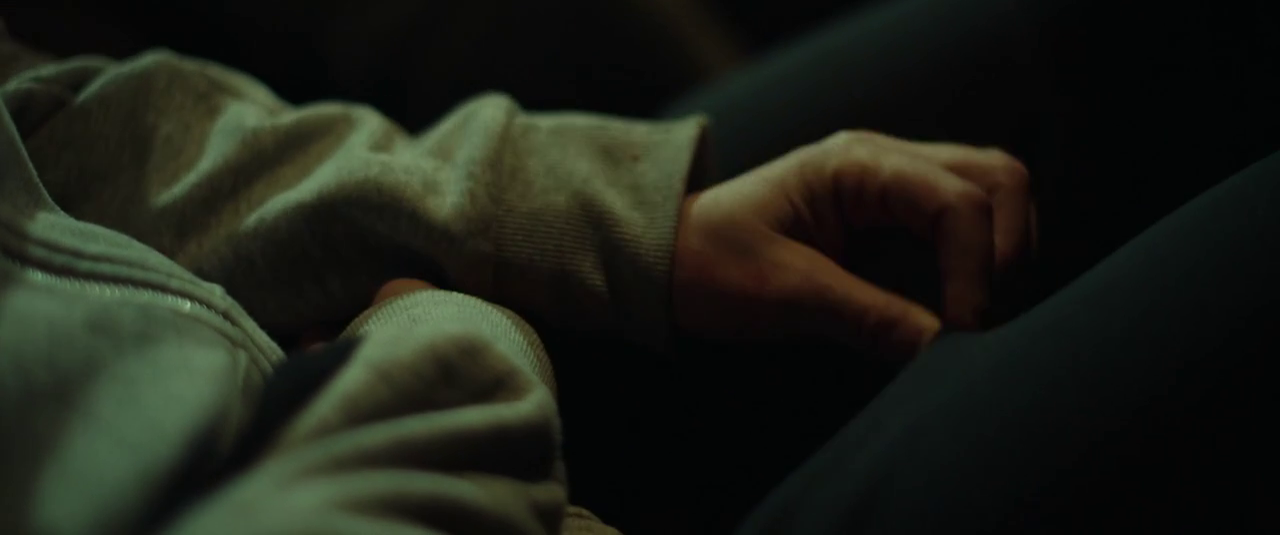
Anxiety has no look, and it can manifest in a million ways, but the common tics are perfected by Fuhrman who delivers a nuanced performance that’s practically an embodiment of performance anxiety. In the car, Alex sits in the backseat biting her nails while her teammates joke about getting the scholarship, and who’s best. When her closest friend in the team informs her she was the second choice for the senior team, she starts fidgeting with her trousers, her mind tuning out the rest of the conversation. She avoids eye contact, and dresses intimidatingly, embracing the resultant seclusion. The warmth that naturally seeps into her eyes after she starts dating, is a testament to Fuhrman’s talent. Alex’s lips aren’t naturally sitting in a frown until she needs to smile, and are in fact curled upwards generally. The moment competition comes up, it vanishes, and the balance between excitement and tension is expressed in her gait and facial expression. Her poker face is back, and she’s tuning out others. The throwing up and breaking down looks rather authentic as well. And then there’s the scene of cutting herself. She marks her skin like a woman possessed, numbed out of feeling pain from the blade, and finally there’s the outburst that the composed performance had been foreshadowing throughout. Her delivery of the lines saying that she can work herself to the bone to be the best is haunting. The crazed look she gives the record holder before the final race is the peak of her obsessive behaviour, and it’s perfectly followed up by her almost suicidal race in the lightning. The closing shot where she looks right into the camera, like a fourth wall break, reveals her exhaustion without words.

Any discussion about The Novice would be incomplete without mentioning the cinematography and editing. The very first scene itself prepares you for visuals that will complement the protagonist’s frame of mind, and will definitely make you anxious as a viewer. It shows Alex running out of class to make it in time for the rowing club meet. The shot opens onto a winding staircase and slowly zooms out in a vertigo-inducing manner, to quickly cut to a shot of Alex running from behind, tracking her, followed almost immediately by another cut into another similar shot. Right then, the title card appears, and after that, she is shown running through a dimly lit corridor with low ceilings. So, there are essentially three tracking shots from behind, of her running. In the first one, she’s running down a narrow metal staircase, bound by railings on either side, and the camera follows her up close like the cameraman could touch her hair if they reached out. In the next one, it’s a wider space, and she runs in through a door. Here, we aren’t as close, although the camera is still moving at the same speed as her, and accelerates to catch up by the time the door closes behind her to reveal the notice. And finally, as she runs through the wide empty corridor, the camera is barely moving, and she’s far away. The viewer is made to sit up and take note from the top view of the staircase, and then gets shocked into becoming wide awake by the rapid run, followed by getting attentive enough to read the words on the notice stuck to the door, and then settling in for the film as the camera motion relaxes.
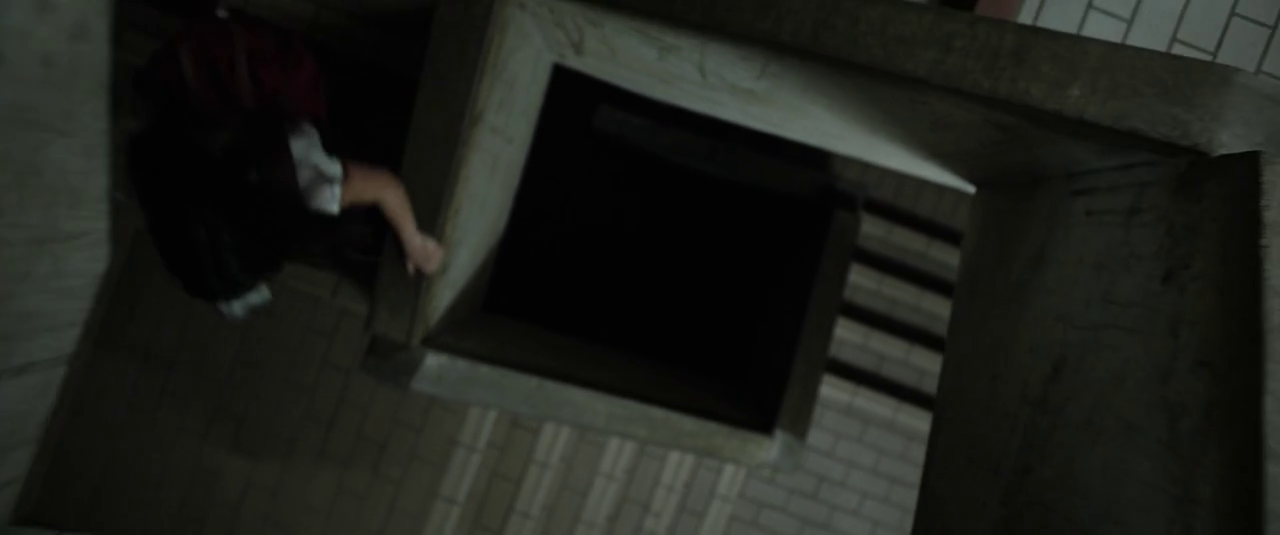
From there, the camera becomes a character, or rather a narrator, controlling our perception of the circumstances. It’s an interesting tactic to have the camera control our perspective in a story that possibly teaches us to make our peace with the lack of control we have over our lives. There aren’t many extended shots in the film except two close-up moments, one where we first realize Alex is pushing herself beyond what her body is possibly able to take, and another when she suddenly crumbles under the stress and harms herself. Both times, the handheld camera lingers over her, not moving or zooming, just shaking the minimum amount, and focusing on Alex, with her occupying over 60% of the frame, allowing her state to loom largely on the viewer’s mind. Most of the film employs fast cuts. Except for conversations where the cuts are only to shift from one speaker to the other, the depiction of races, and practice sessions, don’t have the camera focusing on the same shot for longer than 10 seconds. This rapid shifting of perspectives makes the audience more unsettled and further better equipped to understand what Alex is going through. The love-making scene, however, is edited with similar fast-cuts, but the focus is blurry or the visuals are close-ups, of hands, arms, and this removes the anxiety-inducing element of this technique of editing but ensures the viewer is engrossed. And finally, the shutting-out-the-world grueling practice sessions! Close-ups of hands, arms, feet, equipment, rapidly cutting from angle to angle, are most intoxicating, reflecting her frame of mind when she’s in the zone.
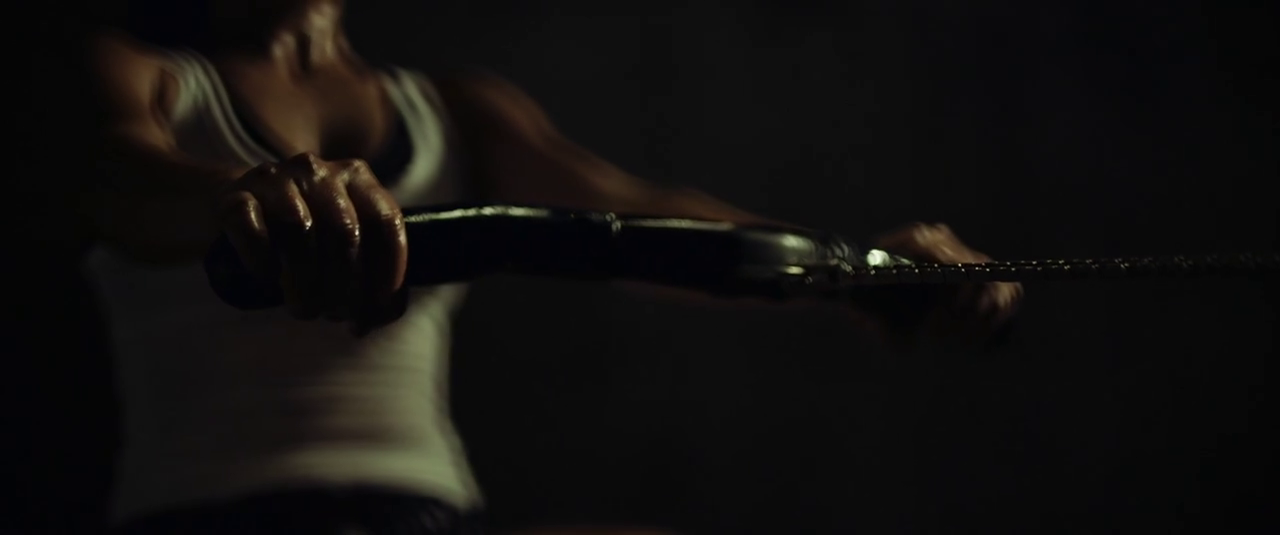
The incorporation of eroticism into the training, with the inebriating visuals of sweaty skin, is the perfect tactic to help us appreciate her own obsession with perfection. There’s something very attractive in the presentation of the grind, just like Alex herself is attracted to the idea of grinding till perfect. This is an interesting contrast from Black Swan, as the practice scenes there, are visually constructed to induce anxiety, to help appreciate the protagonist’s growing detachment from the art that’s gradually killing her. The Novice’s approach, on the other hand, hints at the fact that Alex didn’t realize there was a downfall, and even if it started out on an unsure footing, she’d come to love the water. Out there, she was somehow lost in the motions, and away from the intrusive thoughts. Of course, she was physically exerting herself beyond reason, triggered by her arch rival’s seemingly natural ability to be good at it, but for the moment, her obsession was being expressed constructively. Also, there’s this shot of her looking into a mirror with the words ‘REMEMBER YOUR COMPETITION’ written below, and that perfectly sums up her situation. It’s usually a motivational quote, but in her case, she’ll never stop running out of competition and hence, out of this self-destructive pattern of unnecessarily straining her limits. She’s basically her Duncan Fletcher, in reference to Whiplash, and why this is much scarier is because there’s no showing off to herself. The voice telling her she isn’t her best resides in her, and while the ending mirrors Whiplash’s in that context, it’s haunted by the reminder that circumstance hasn’t changed. Will ending her toxic relationship with rowing really help her, if it’s her own obsession that she needs to break up with? The question looms on the mind as Isabelle Fuhrman looks into the viewers’ eyes, and suddenly the moment of sheer jubilation becomes one of doubtful exhaustion. Despite this genre not being a new one, The Novice offers a fresh perspective with its study of performance anxiety.

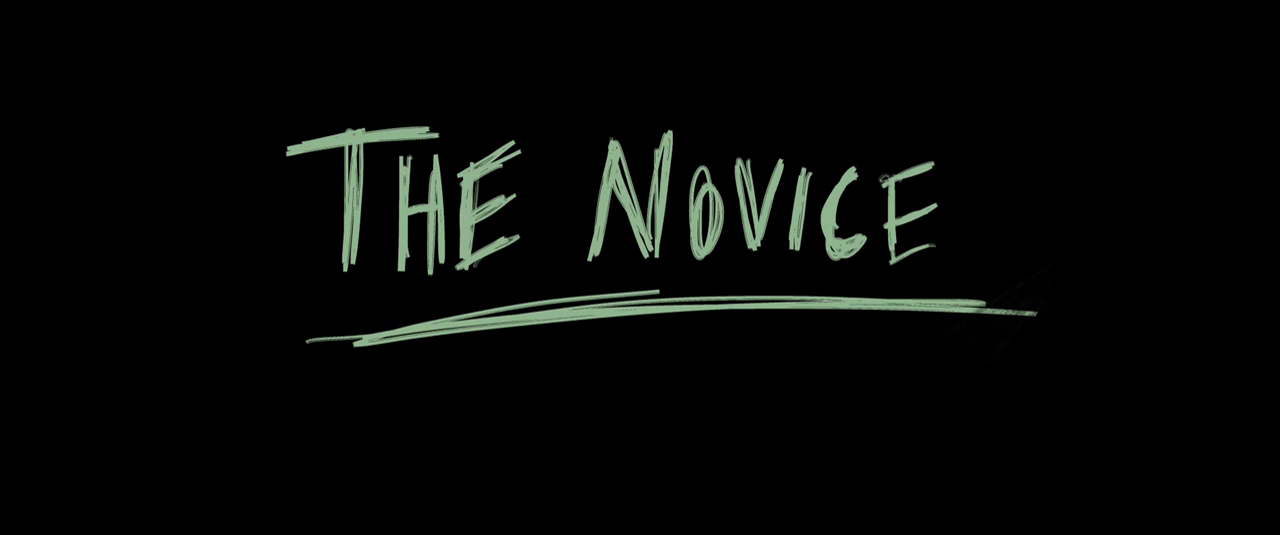
Comments